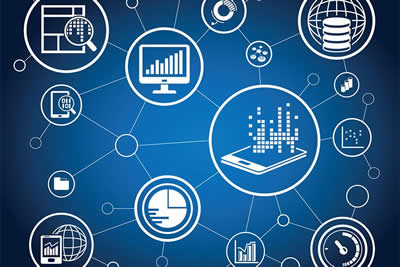Article No. 20 [UNCTAD Transport and Trade Facilitation Newsletter N°78 - Second Quarter 2018]
Recently, the press has widely spoken about the “disruptive” impact of blockchain (distributed ledger technology) in the finance sector. UNCTAD and the UNECE’s United Nations Centre for Trade Facilitation and Electronic Business (UN/CEFACT) expect the impact of blockchain technology to be just as profound in the areas of trade and transport.
Trade processes often require the use of intermediaries. Some of these intermediaries physically handle, process and transport goods. Others, such as banks, inspection companies, and many government agencies often act as guarantors of: the authenticity of documents or information; the truthfulness of information; and/or the trustworthy behaviour of parties.
The last could be called “guarantor activities” – and blockchain technology is set to make many of these activities disappear.

Originally developed as the technology underlying Bitcoin, a blockchain allows the creation of electronic records that are “originals” and cannot be copied (a bitcoin” is just such an electronic record). And the ownership of this electronic “original” can be passed from a sender to a receiver (in the case of a bitcoin, from a purchaser to a seller) without the receiver of the electronic record (or bitcoin) having to worry about it being a counterfeit.
Taking this a step further, into the world of trade, blockchain technology can be used to create electronically “notarized” original electronic documents or agreements such as contracts, certificates and licenses (with a time stamp and a “guarantee” that no changes have been made since the time of issuance).
In addition, unalterable programmes (called smart contracts) can be recorded on blockchains. These would allow, for example, a bank to sign an agreement with an exporter which says, when a sales contract is recorded on the blockchain with the purchaser’s electronic signature, the bank will provide 50% trade financing for the contracted sum. The work of the bank’s staff will then be finished because the blockchain “smart contract” will make the payment when the sales contract is recorded on the blockchain – without them having to verify anything because this is done by the blockchain. In addition, the exporter will receive their financing within minutes, or hours, of the sales contract being recorded.
Combined with other technologies such as Radio Frequency ID tags and sensors connected to the Internet, blockchain technology will create opportunities for unprecedented transparency in international supply chains. Some examples from food supply chains follow, similar examples can be given for pharmaceuticals, machinery and other products.
Today, you can know which country your coffee was grown in, tomorrow you will be able to know the name of the farmer. Today, if food contamination is discovered in a cucumber, all cucumbers are pulled from the market and the livelihood of thousands is put in danger. Tomorrow, the authorities will be able to identify the farm, or processing plant, where the contamination came from almost immediately. Today, you may never know if food or pharmaceuticals in a container were exposed to unacceptable temperatures. Tomorrow, your insurance company may reimburse you before the goods arrive at destination because of information sent from a sensor to a blockchain. Today, unethical vendors can “hide” the origin or actual content of their products (for example by claiming that horse meat is beef or that produce was organically produced when it was not). Tomorrow, when product information can be linked all the way back to the farm, this sort of cheating will be much more difficult.
These are just some of the applications of blockchain technology already being developed today. If you are responsible for guarantor activities, or use them, now is the time to identify the opportunities and the challenges that these changes will bring. Challenges, because:
- Companies and entire industries may have to re-invent themselves or risk disappearing.
- Additional expertise in new information technologies (such as cryptography and smart contract programming) will be needed.
- Those who implement first (or best) may gain important competitive advantages (either as companies or even as countries).
Because of the potential impact of this technology on trade and trade facilitation, both UNCTAD and the UNECE’s United Nations Centre for Trade Facilitation and Electronic Business (UN/CEFACT) are following these developments closely and working to help governments understand and use their potential.
For example, UN/CEFACT is developing two white papers to address the following questions
- What is the impact on existing UN/CEFACT electronic business standards and what gaps could be usefully addressed by new UN/CEFACT specifications?
- What opportunities do these technologies present for improving e-business, trade facilitation and the international supply chain?
The first white paper is on technical applications of Blockchain. The second one is on opportunities for trade facilitation and e-commerce and it will be available for comment this autumn.
UNECE has also cooperated with UNCTAD to help provide forums for countries to discuss the new trade facilitation opportunities provided by blockchain technology, for example during the annual UNCTAD eCommerce Week.
The author, Virginia Cram-Martos, is the Project Leader, UN/CEFACT Blockchain Whitepaper Project and the CEO of Triangularity SàRL
For additional information contact: Virginia Cram-Martos ([email protected])



